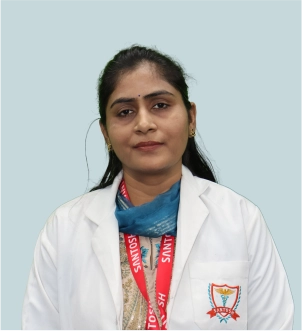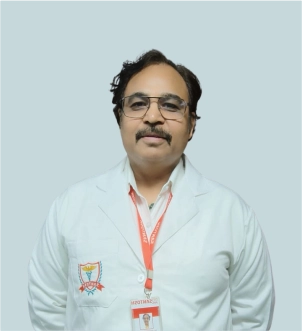
Microbiology is the most important medical discipline of biology that helps to detect disease-causing organisms like microbes, pathogens, or various kind of viruses that are responsible for causing disease in human and animal. Msc Medical Microbiology course is offred by santosh deemed university in NCR Delhi with Excillent faculty and affordable fees. The field aims to research such microbes for use in industrial, agriculture, genital engineering, modern medicine, food, and beverage, and the fermentation industry.
Click here to read more about Microbiology department.
Eligibility Criteria: The Candidate who possesses Bsc. ZBC (Zoology/ Botany/ Chemistry), Bsc. Anatomy/ BDS/ BMLT/ BPT/ BMM/ B.Pharma./ BAMS/ Biotechnology with at least 50% aggregate Marks.
Course Outline:
First Semester:
Second Semester:
Third Semester:
Fourth Semester:
Fifth Semester:
Sixth Semester:

Professor & HOD

Professor & HOD

Professor & HOD

Professor & HOD

Professor & HOD

Professor & HOD

Professor & HOD

Professor & HOD

Professor & HOD

Professor & HOD

Professor & HOD

Professor & HOD

Professor & HOD

Professor & HOD

Professor & HOD

Professor & HOD

Professor & HOD

Professor & HOD

Professor & HOD

Professor & HOD

Professor & HOD
An MSc in Medical Microbiology opens up several career opportunities in various fields. Graduates can work in research and development in the pharmaceutical or biotechnology industry, diagnostic laboratory work, public health administration, and academic research and teaching. Here are some of the career prospects for graduates with an MSc in Medical Microbiology:
Overall, the demand for medical microbiologists is increasing due to the increasing incidence of infectious diseases and the need for new diagnostic and treatment methods. Graduates with an MSc in Medical Microbiology are well-positioned to pursue rewarding careers in this field.
©2026 Santosh Deemed to be University | Designed, Developed & Managed by : HashTAGit. Last updated on 23rd Feb 2026